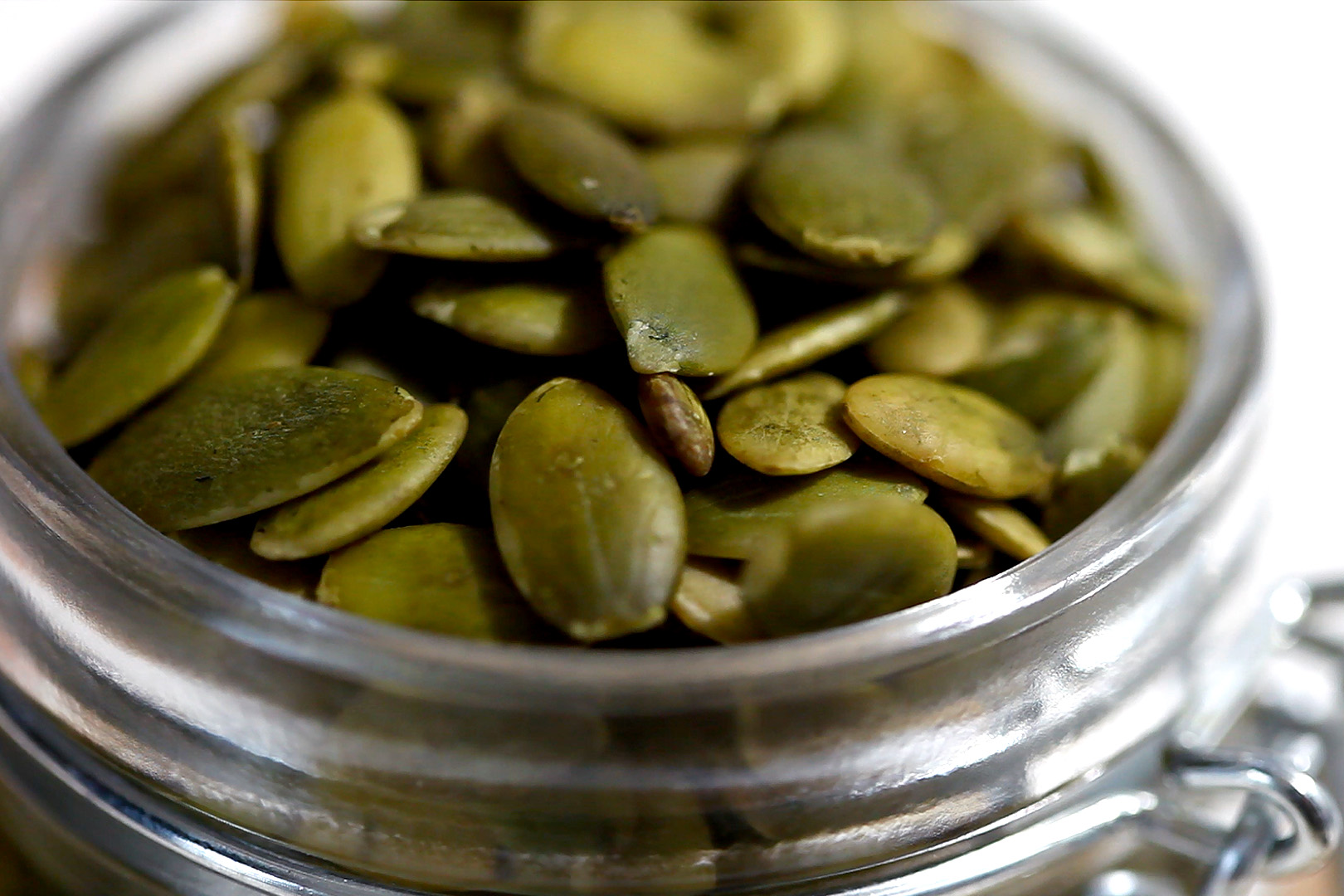Pumpkin Seeds – Health Facts and Skin Nutrition Benefits

Many people wonder if pumpkin seeds are good for you, the answer is simple, yes. Perfect for paleo, vegan and vegetarian diets alike this healthy edible organic superfood is packed with diverse nutritional value. Its versatility is outstanding when it comes to cooking and methods of culinary preparation, and can easily be included in a variety of deliciously health conscience recipes.
Yielded from the robust orange pumpkin plant that originated in Central America, its seed cultivation dates from at least the 5th millennium B.C. The plant belongs to the cucurbit vegetable family along with squashes, gourds and melons; and is grown globally today.
Healthy Skin Benefits
Pumpkin seeds contain many benefits for healthy skin, this little nutrient dense superfood delivers several key minerals that promote cell regeneration and youthful hydration. So if you’re asking are pumpkin seeds good for your skin? In fact they are great.
Nutritional skincare
- Increases blood and oxygen flow to the dermis. This assists in thickening and strengthening an important layer of skin.
- Repairs damaged tissue and aids in cell regeneration.
- Helps the body synthesize hyaluronic acid, helping the body produce this critical moister property for the skin is an essential benefit.
- Contributes to collagen and connective tissue formation.
Super Skin Properties
The primary nutritional properties that contribute to skin health include:
Great Source
- Manganese
- Magnesium
- Zinc
- Copper
- Iron
Also Contains
- Vitamin A
- Vitamin K
- Vitamin E
- Carotenoids
Additionally research suggests they fight diabetes, prostate problems, improve the immune system, lower cholesterol levels and aid in osteoporosis prevention. As well they act as a natural remedy by helping to eliminate intestinal parasites and tape worms.
Read more: nutrition, calories and facts
Preparation
Raw pumpkin seeds can be roasted or oven baked for about 15-20 minutes. Recent studies have shown a 20 minute limit prevents unwanted changes occurring in the good pumpkin seed fats.
This multipurpose little seed can be turned into a variety of edible and topical formats, cold-pressed for its exceptional oil, processed into a ground meal or creamy butter to name a few.
How to prepare, select and store
Cooking and Recipes
Popular methods of preparation include roasting or oven baking, they complement many dishes and are easily added to recipes.
Side Effects
Eating too many pumpkin seeds can cause intestinal gas and diarrhea. If you experience diarrhea after consuming them you may have a food intolerance or sensitivity. Constipation is also a possibility, although less likely. Eat in moderation, 28 grams is an average amount for an individual serving. They have also been known to cause migraine headaches. However if you’re not prone to them the chances of developing one from consumption is extremely low.
Allergies
Pumpkin seeds are not considered to be a highly allergenic food and reactions are rare. Common symptoms usually affect your skin. If you consume or come in contact with them and experience skin rashes, itchiness, swelling of the neck or mouth, sneezing, nasal congestion, shortness of breath or coughing this may be an indicator that you’re experiencing an allergic reaction.
*Always consult with a health care practitioner before you make changes to your diet or experience negative effects when consuming or coming into contact with any food.
Reference(s):
- https://en.wikipedia.org/wiki/Pumpkin_seed
